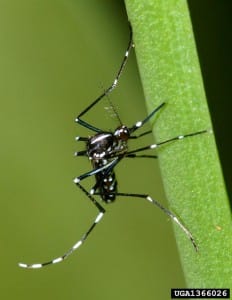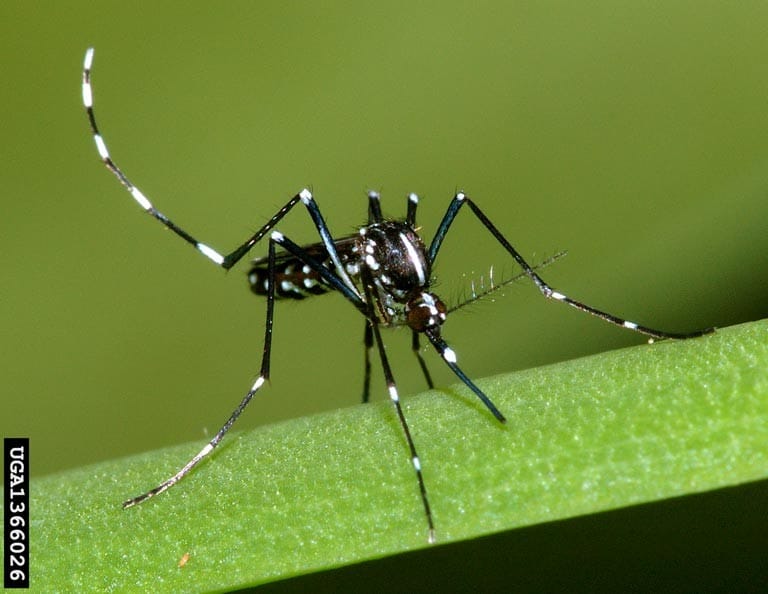Rosmarie Kelly, Public Health Entomologist, Georgia Department of Public Health
The first step in controlling the mosquito species which are causing your client problems is to identify the local species. Quite often, not all methods of control will work well for all species. Knowing which species are the issue can help you determine future control methods.
So, how do you determine which species are active at any given time in your area? The best method is to set out light traps in the area, collect the mosquitoes, and identify them. If this is done in a systematic way, it is possible to develop a database of local mosquito species that will aid you in determining the best method of control at any given time.
Is this always feasible? Unfortunately, no. However, depending on where your client lives, some of this information may be available from other sources. Municipal mosquito control programs in Georgia rarely have sufficient funding to do mosquito surveillance. However, there are a few programs that do collect surveillance data and may be willing to share information.
Mosquito information is available through the Georgia Mosquito Control Association. See http://www.gamosquito.org/resources/mosspecies.htm

The very least that should be done is to determine if the mosquito causing the problem is Aedes albopictus, the Asian tiger mosquito. Asian tiger mosquitoes are small, aggressive, day-biting mosquitoes with black and white striped legs.
Since they do not fly far from their breeding ground, Asian tiger mosquitoes can be controlled through a combination of source reduction (eliminating breeding sites) and barrier spray (application of pesticide to vegetation where mosquitoes rest). Not all mosquitoes will rest locally after biting, so barrier spray may not be as effective for all species but it works well for Asian tiger mosquitoes.
The most important reason to understand which mosquito species are causing problems at any given time is to assist with educating the client. People tend to believe that all mosquitoes are the same, and often have unrealistic ideas about their control. If you are well informed, it can help you when discussing control issues with the client and assist in keeping the client happy with your control program.
There are control situations that are better handled by commercial mosquito control companies. Having a list of local commercial applicators can be useful to a municipal program.
Resources are available to assist with mosquito surveillance and identification. Check out these sites:
http://www.mosquito.org/assets/Resources/PRTools/Resources/bmpsformosquitomanagement.pdf
http://www.mosquito.org/control
The Florida Medical Entomology Laboratory at the University of Florida offers an Advanced Mosquito Identification and Certification Course (http://mosquito.ifas.ufl.edu/Advanced_Mosquito_ID_Course.htm).
The Georgia Department of Public Health has offered at least one mosquito ID course every year since 2002, and hopes to continue this tradition. The various mosquito control products vendors not only offer equipment calibration, they also offer training opportunities.
